Exclusive: Meet World Record Marathon Swimmer Chloë McCardel

Chloë McCardel swam 126km within two days, solo and unassisted in open water to etch her name in aquatic sports history.
On a balmy night on October 22, in the dark tropical waters of the Bahamas, the 29-year-old Australian swimmer made her last few strokes to enter Nassau, the capital of the common wealth of the Bahamas. In doing so, Chloë McCardel became the first person in the world to do the longest, solo, nonstop, unassisted marathon swim in ocean water.
She swam 126 km across Exuma Sound (a body of water in the Bahamas) in the Atlantic ocean from South Eleuthera Island to Nassau in under 42 hours.
David Barra and Brianne Yeats, members of Marathon Swimmers Federation (MSF), the world’s largest community of long-distance swimmers observed her swim. According to their comprehensive report, Chloë has set a world record.
In one of her first interviews since her feat, Chloë talked to The Outdoor Journal about her swim, her belief in swimming sans protective gear and what keeps her going.
Why did you choose the Bahamas as your record-breaking course?
There’s multiple reasons for choosing this course. First of all we needed a start and finish point on land. We also wanted the distance to be over 120 km, and on top of that we needed a temperature that would be comfortable to swim across over an extended period of time.
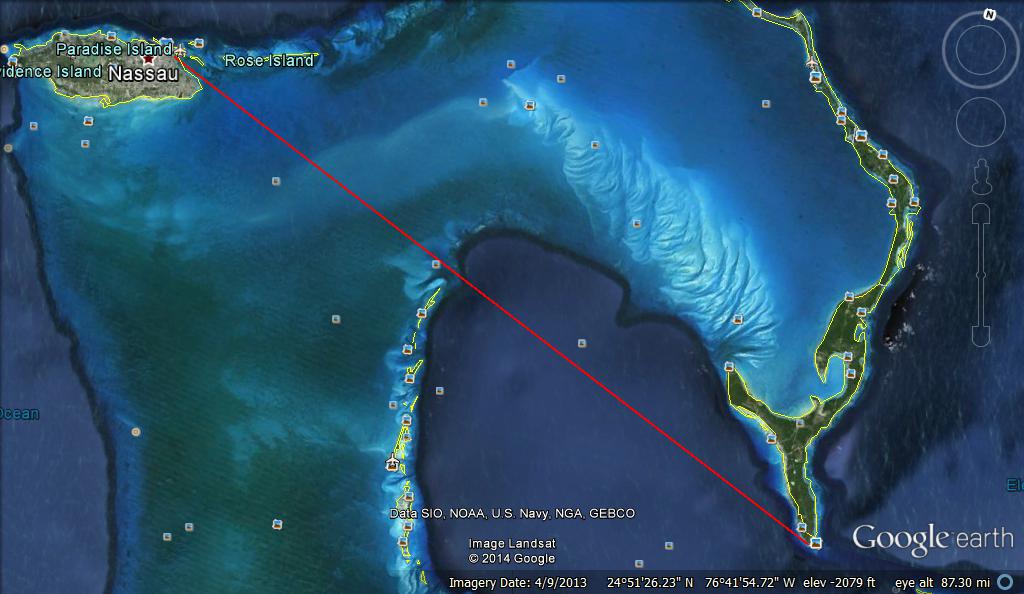
There is always a chance of hypothermia where you get too cold because the water temperature is always below the human core temperature of 36 degrees celsius. So we needed to be in tropical waters where there was low chance of the deadly Irukandji jellyfish or box jellyfish. That ruled out the swim in Cuba, because my attempt last year ended abruptly because of the poisonous jellyfish.
We also wanted to be close to the east coast of the US, because we had a highly specalised support crew that lived there and it would have been out of the way to get them to travel to our location. It was much easier to fly them to the Bahamas than to Australia.
Chloë had a 17-member team, which included the pilots, her personal crew, kayakers, shark safety personnel and observers from MSF.
What is the most revolting swim you have done in terms of pollution?

Haha! Well I have never had that question! So in 2010 I went for a Manhattan Island Marathon. It involves a 46km circumnavigation of Manhattan island in a race. Prior to the event we were told to get a couple of preventive injection shots, because sewage sometimes gets released in the water. And if it rains a lot, drains tend to overflow and all sorts of rubbish enters the water body. Swimmers often get sick and are hospitalised. But having said that, the year that I swam (and won!) was completely fine. I got lucky I guess. I have known people pulling out halfway simply because they can't stand the water.
Chloë had a nutrition feed every 30 minutes. It included both water-based and solid foods -multi-vitamins, energy gels, caffeine, noodles, bananas, nutella bread.
What kind of dangers does one need to look out for in an open water swim?
Open water swimming is an interesting sport, because it is quite wild. Swimming the English Channel is very different than swimming in Cuba and so every water body in the world has its own unique set of dangers. I can’t make a generalised statement.

First of all take precautions, find out who is swimming in that area – there might be a local swimming group or an organisation that might offer help. Cold water can lead to hypothermia and warm water could have the presence of box jellyfish or there could be submerged rocks or other things. If you are swimming through a city, pollution is an issue.
If you can’t find any local swimming in the area, then research online, find forums, and find ways where people can just help you out. People generally really want to help out others, to encourage the sport, and support each other in open water swimming. So if you want to do your research on it specifically that may help you better than giving answers generically. In addition, the Marathon Swimmers Forum is a great space to seek such answers.
How did you start out in open water swimming?
I did competitive swimming when I was a teenager, but only for four years. My parents thought it was better for me to focus on my studies. So I was kind of forced to stop at the time. I used to miss it and really wanted a challenge that wasn’t academic. During college, I went for a few triathlons but it didn’t quite fulfill that desire I had. My swimming was strong and I had done years of it in a competitive environment and felt that I had a huge amount of fitness, strength and technique work under my belt. I was very good at the swimming leg in triathlons but the rest of it was just downhill.

In 2007, I did my first marathon swim. I was out in the ocean, I could see fish, I could see the conditions change, I was swimming in something that is alive and is constantly moving. I had a great time that day and decided to pursue it. It is a beautiful way to not only be healthy and challenge yourself in a sport but is a also a great way to stay connected to nature. Sounds a bit corny but that’s just how I experience the sport.
Why do you choose to be an open-water marathon swimmer?
It’s funny you should say that because there is a saying in the swimming community of the English Channel that goes like this:
Why would someone swim between England and France? – you can catch a plane, you can catch a train, you can catch a ferry there, why would you want to swim it?
So you don’t do these crazy swims because it is logical. You don’t do it because it is the quickest way to travel between A and B. Also, in most sports you are challenging competitors or you’re challenging a clock.
But in open water swims, you are challenging yourself, and you’re challenging mother nature, because you don’t know what conditions you are going to get. And even within the same day the conditions will change, you are just not going to have the same conditions to try a swim.
Chloë has swum seven solo crossings of the English Channel, including 3x single crossings and 2x double crossings. She has won a number of international awards for displaying endurance and speed in marathon swimming.
For me it may not seem like the most logical sport, and it may seem quite long and arduous for someone who likes shorter distances, but there is just something really special about pushing yourself beyond the boundaries, which is possible for a human and taking it as far as it can go.
There has been a debate within the marathon community about changing the standardised gear allowed in marathons, owing to dangers in open water. You just set a world record unassisted. Your thoughts?
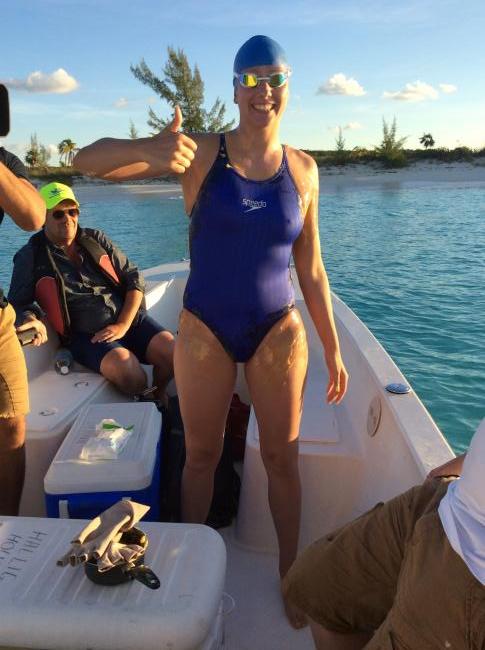
Yes, there has been debate in the marathon community that swimmers should be allowed to wear extended bathing suits going down to their ankles and wrists, and protect themselves from jellyfish stings and sunburns.
I completed my swim successfully with my normal attire and have set an example to my community that it is actually possible to do this, in your basic swimsuit, goggles and cap. Yes I was stung quite a few times and I got sunburnt and I spent a few days in the hospital, but I would do it again, because I believe in the traditional true spirit of the sport, the way marathons were done in the past. And I don’t think we should compromise the rules just because there is a potential of getting sick or injured.
Is it true that open water swimming is possibly the only athletic endeavor where women consistently beat the best men in the world?
That’s an interesting point, because that’s been discussed in the marathon swimming community. In my swim in 2010 around New York Island, I did beat all the men and women in the solo, and I often beat the male solo swimmers when I swim the English Channel so I have done that two years in a row. But I personally don’t believe that women are biologically better suited to swim faster or longer in the open water.
Apart from being a marathon swimmer, Chloë provides swim teaching, life guarding and first-aid training. She also provides training to English Channel swimmers.
I do feel though that women have better mental strength, and have the ability to withhold a high threshold of pain. We go through childbirth afterall. But other than that, I don't think that women have an advantage.
What is your ultimate mission in life?
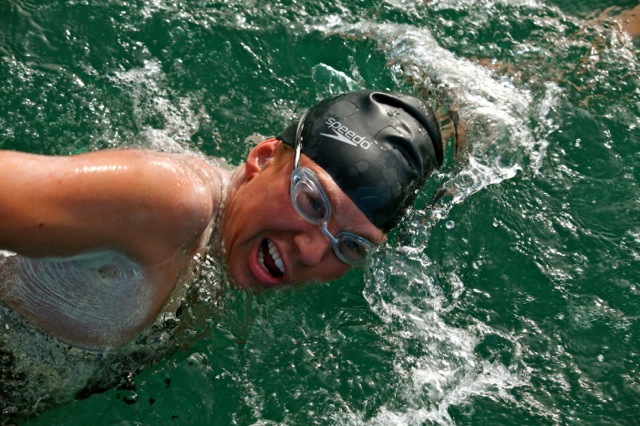
I really want to use my unassisted win as metaphor and say look, if in the swimming world I can achieve something by not wearing protective gear and still complete a new world record distance, then why can't people in everyday society do amazing things. I want to be a beacon for the people who consider themselves average, because we are not as average as we think we are. We can achieve all those amazing things.
I want to inspire other people around the world, that if you work very hard and have a good team around you then your potential is limitless. You can achieve incredible things. Don't fear failure, don't think that dreaming big is not going to work out in reality.
Images © Chloë McCardel
To know more about Chloë, click here


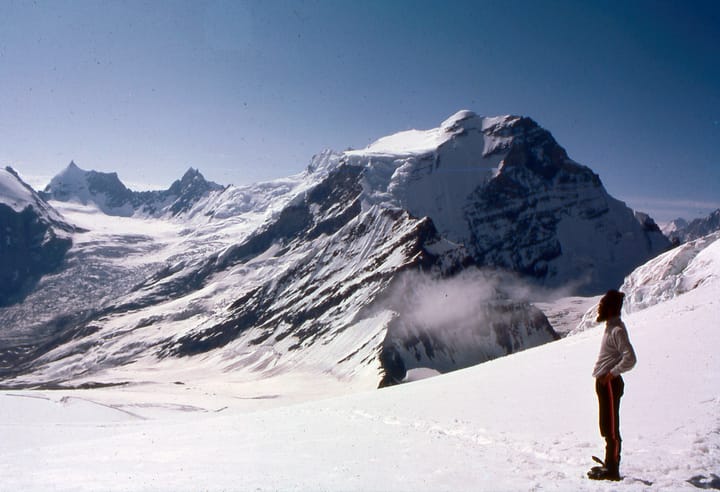
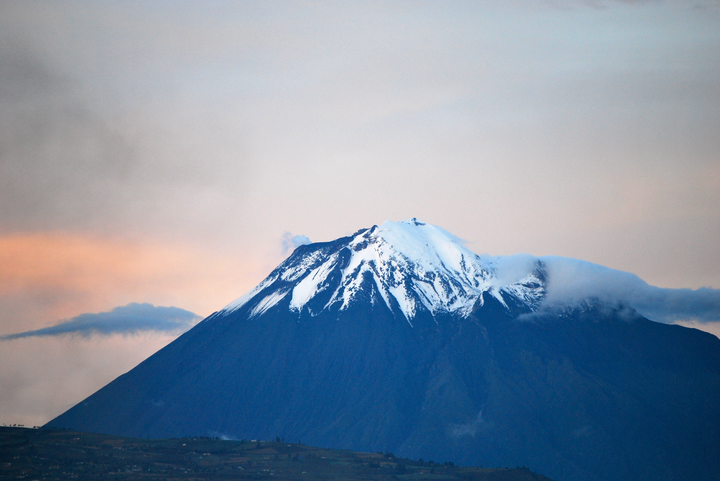
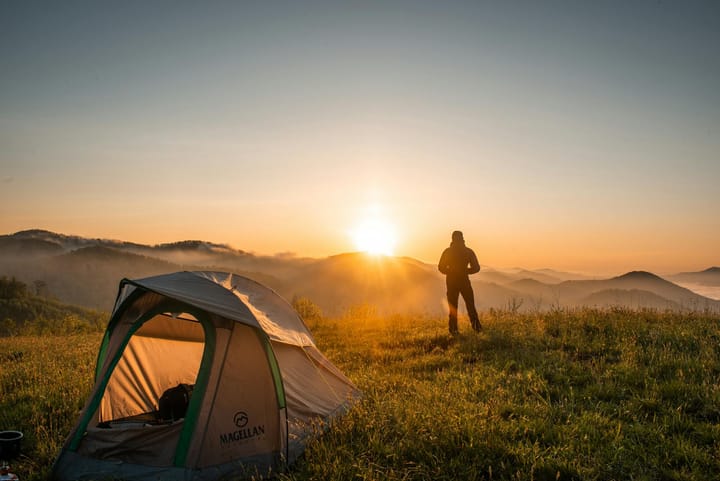
Comments ()